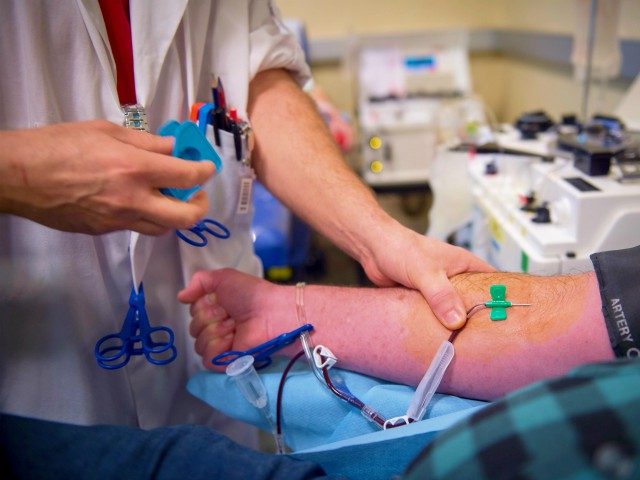The Food and Drug Administration (FDA) is planning to lift more restrictions on donating blood for gay and bisexual men in monogamous relationships, even if they have not abstained from sex for 90 days.
The new rules are expected to be implemented within the coming months, FDA sources familiar with the plans told the Wall Street Journal.
Potential gay and bisexual male donors would still need to complete a risk assessment questionnaire before being allowed to give blood. The FDA is still in the process of drafting the new questionnaire and guidance.
Potential donors will likely be asked if they have been sexually active within the past 90 days. They likely will be able to donate if they have not had any new sexual partners within those three months.
However, if a potential donor has had anal intercourse with a new partner over the past 90 days, they would likely be barred from donating until they have abstained for three months. The Centers for Disease Control and Prevention lists anal intercourse as the riskiest type of sex for getting or transmitting HIV.
The FDA has been slowly lifting restrictions on gay and bisexual men from donating blood over the past seven years.
In 2015, the agency lifted a blanket ban on gay men donating blood — implemented in the 19980s at the height of the HIV/AIDS pandemic — but still required them to wait a year if they were sexually active. During the coronavirus pandemic in 2019, the FDA reduced the 12-month wait to three months due to the nation’s low blood donor supply.
The potential new rules follow a study of around 1,600 gay and bisexual men that sought whether a risk assessment questionnaire was more effective than a set waiting period for keeping the blood supply uncontaminated. The study was conducted by three of the largest U.S. nonprofit blood centers: Vitalant, OneBlood, and the American Red Cross.
One FDA official told the Journal that 90 days would be enough time to know if a person has been infected with HIV or not.
You can follow Ethan Letkeman on Twitter at @EthanLetkeman.

COMMENTS
Please let us know if you're having issues with commenting.